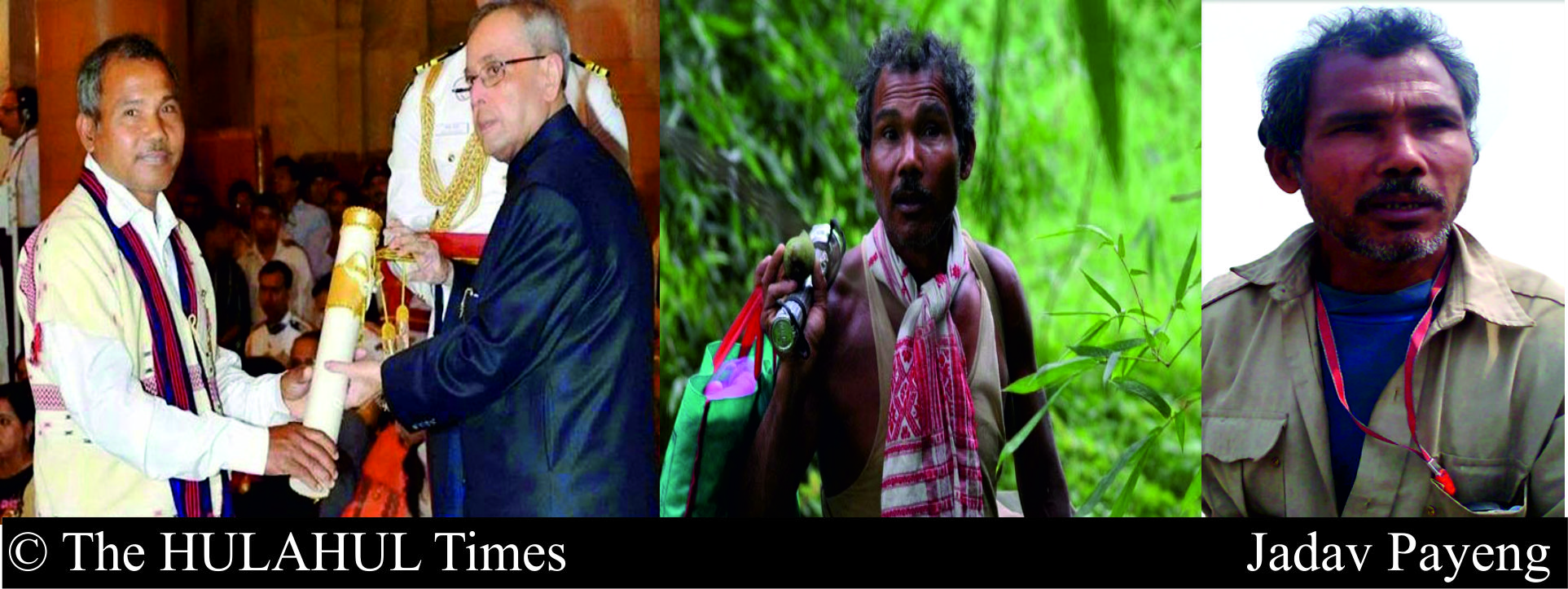JADAV PAYENG
TAKING STEPS TO ENSURE HUMAN AND ENVIRONMENTAL COEXISTENCE
- Blog / Person of Interest

30th May, 2022
Author: Preeti Sharma (Content Writer)
Forests are a diverse layer of the earth elements. They produce a healthy environment in which diverse animal species and birds can live peacefully .Forests not only serve wildlife, but they are also extremely important to humans and provide a vast amount of natural resources for a variety of products. Aside from that,
forests are a key source of employment for a substantial number. Humans, for instance, are engaged in their preservation treatment, and other operations.
This week, The HULAHUL Times is pleased to highlight an environmental activist and warrior who are fighting for a world in which the mankind and the environment survive together. Jadav Payeng, designated as the "Forest Man of India" by India's former president, planted trees every day and developed a man-made forest larger
than New York City Central Park.
The idea of planting the trees began when as a young teen Jadav Payeng met Jadabesh Barua, an agricultural expert, who used to give him seedlings of paan leaves to plant. One day, Barua instructed him, 'plant a tree and they would take care of us.' So, when Jadav observed Majuli, his home town changing into a wasteland,
he started planting trees” Jadav was disappointed by the fact that World Earth Day has been commemorated for the past 30 years and still we are unable to restore the forests.
The story of 59 years Jadav Payeng is connected and devoted to the Mother Nature. He is often known as the Forest Man of India, is an ecological reformer and forest worker from Majuli and belongs to ancient Mising tribe of Assam, who lives in Jungle. Jadav Payeng, the son of a buffalo merchant, born and raised in Assam,
as a poor farmer from a disadvantaged tribal group. He lives in the jungle with his family and supported by his wife Binita and three children. He has cattle and buffalo on his farmland which is his main source of income. Jadav stated that he had lost probably 100 of his cows and buffaloes to tigers in the jungle,
but he accuses huge invasion and degradation of natural resources as the fundamental cause of wild animal distress. Across several generations, Jadav Payeng has grown and cared for trees on a sandbar of the Brahmaputra River, developing it into a nature reserve. The Molai forest, named after Jadav, is situated near
Kokilamukh in Jorhat, Assam and covers approximately 1,360 acres / 550 hectares.
According to wildlife experts, the current situation has led to the assertion that the forest currently receives 80 percent of the world's migrating birds. Molai forest is the official name and as a memorial to Jadav, the people call it Molai. Jadav said "As a toddler, I was fair and had pink face like the winter radish".
So Mola was my childhood nickname (radish in the local language). People began calling it Mola'r haabi (Mola's forest) when I grew older and began planting trees. Villagers easily made it Molai forest from there." Jadav, on the other hand, refuses to acknowledge recognition. He said "I was helped by animals, cattle, deer,
weather, rain, and rhinos."
In 1979, when he was only 16 years old, Jadav "Molai" Payeng witnessed hundreds of dead snakes, captives of a catastrophic drought on Majuli Reserve—the world's biggest river island situated in India's Brahmaputra River in Assam. He broached the subject with his elders, who said that the greeneries might save their
motherland, the population, and the wildlife in this region. At this early age Jadav took this as an initiative and began planting plant seedlings every day in the desolate land. Over 40 years later, his forest has grown to 1,390 acres, roughly the size of 15 football stadiums. Jadav abandoned his formal studies to
devote himself entirely to the forest.
The Molai Reserve, which covered around 2,500 acres, was once a paradise. During the monsoon season, unfortunately, the stream floods everything within sight, damaging dwellings and farmland and creating degradation. Due to considerable soil erosion on its banks, the farmland is now constantly threatened. Each year
the reserve has dropped by more than half in the last seventy years, there are predictions that it could be completely flooded within the next twenty years, displacing 150,000 people.
Jadav Payeng signed a commitment with the NGO Foundation Azteca in December 2020 to participate on green initiatives in Mexico, with the goal of planting 7 million trees in the North American country. He has been awarded a 10-year visa by the Mexican authorities. Annually, he will spend three months in Mexico,
in September, October, and November, because it is the best season to plant trees in Mexico. "Jadav has planned to engage himself with one Lakh students per day for the massive reforestation initiative," he added. During the COVID-19 outbreak, Jadav Payeng and an NGO planted 2 Lakh trees in various parts of
the state.
Jadav Payeng, who was awarded the Padma Shri in 2015, he believes that if developing countries take necessary efforts to protect the environment, the world's natural balance will be restored. Jadav Payeng has also asked UNESCO members that we should compel residents to take good care of the environment and support
reforestation for future generations, if we accomplish this, the world will be a happier and healthier place to live.
The Indian Forest Man, Jadav intends to transport an Areca nut and a coconut seedling plant from Assam to Mexico. He says no matter where I travels, my soul longs for homeland. "Everything is wonderful, spic and span, but nothing compares to my forest." They pay to view tigers, rhinoceroses, and elephants.
I all see them for nothing at their place."